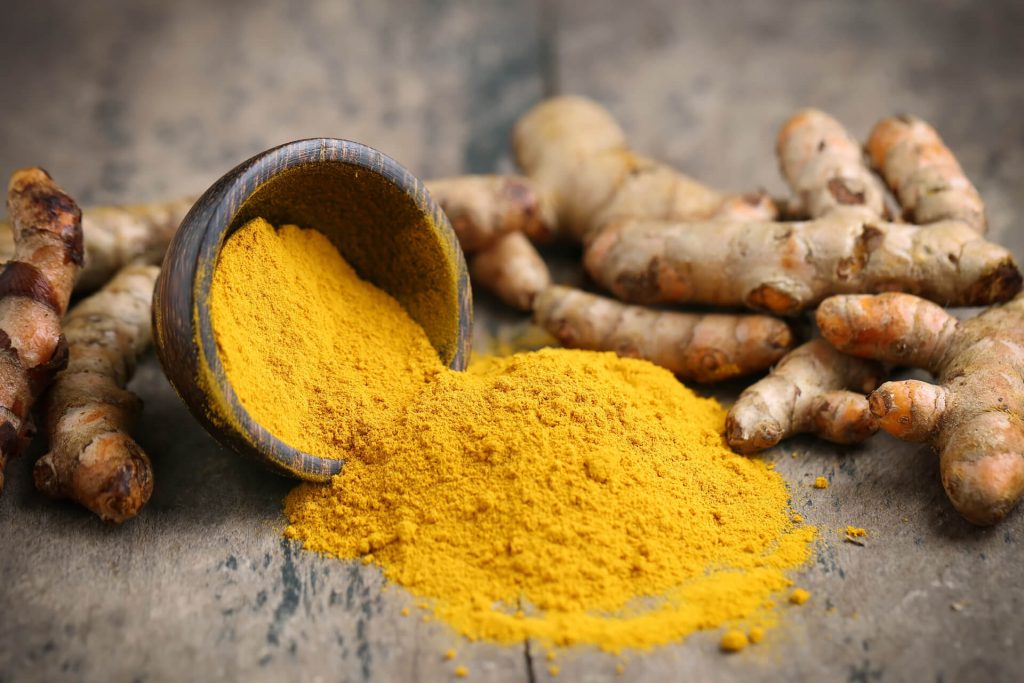Discover the Health Benefits of Curcumin

The health benefits of circumin (aka turmeric) are endless.
You may have heard of it, smelled it or even eaten it. Curry is not only a popular and tasty spice; it offers a multitude of health benefits, including digestion, absorption and even muscle/joint recovery due to its potent anti-inflammatory properties. Curcumin is the natural active extract found in the turmeric plant and the yellow pigment found in curry spice. It has been used therapeutically in Chinese medicine for thousands of years.
Curcumin Research
Research has shown that curcumin has powerful anti-oxidant and anti-inflammatory proprieties. Curcumin has anti-inflammatory properties by inhibiting the major inflammatory pathway (Tnf-α and nF-kB) and the ability to mimic aspirin as a COX2 inhibitor. Supplements containing curcumin have been shaken to reduce the severity of joint pain in individuals with osteoarthritis and even in those with rheumatoid arthritis.
Studies have shown that curcumin inhibits protein degradation after injury and in cases of cachexia (general wasting usually associated with chronic illnesses). Curcumin supplementation following eccentric exercise led to reduced post-exercise inflammation and markers of muscle damage while also improving exercise recovery.
Curcumin activates PPAR (peroxisome proliferator-activator receptor), which is a group of key nuclear proteins that regulate gene expression and modulate sugar uptake and utilization in the bloodstream, modulating blood sugar and increasing insulin sensitivity. This can be important in helping you in your weight and fat loss goals.
A major setback of curcumin is due to the fact that is is both unstable and not bioavailable. Thanks to science, this has been fixed! Bioavailability of Curcumin when co-administered with 20mg BioPerine (black pepper extract) was enhanced by 20-fold or 2000% compared to bioavailability of Curcumin alone. The main reason for this synergy is due to the increased uptake in the small intestine (and into the bloodstream) prior to getting metabolized and degraded in the liver. Both of these ingredients have been included in our prescription grade joint health formula Joint Edge Rx, to help ensure your best results possible!
No adverse side effects have been reported with Curcumin. Unfortunately, prolonged use of NSAIDs such as aspirin, naproxen, Advil, and ibuprofen have been linked to increase risk of kidney disease, stomach ulcers and gastrointestinal bleeding. You won’t have to worry about these side effects with curcumin. So next time you order some curry chicken, ask for an extra side of curry!
References
- Bharat B. Aggarwal, Chitra Sundaram, Nikita Malani, and Haruyo Ichikawa. Curcumin: The Indian Solid Gold. Advances in Experimental Medicine and Biology 595 (2007): 1–75.
- Deng YT, Chang TW, Lee MS, Lin JK. Suppression of free fatty acid-induced insulin resistance by phytopolyphenols in C2C12 mouse skeletal muscle cells. J Agric Food Chem. 2012 Feb 1;60(4):1059-66.
- Sita Aggarwal, Haruyo Ichikawa, Yasunari Takada, Santosh K. Sandur, Shishir Shishodia, and Bharat B. Aggarwal. Curcumin (Diferuloylmethane) Down-Regulates Expression of Cell Proliferation and Antiapoptotic and Metastatic Gene Products through Suppression of IκBα Kinase and Akt Activation. Molecular Pharmacology 69, no. 1 (2006): 195–206. doi: 10.1124/mol.105.017400.
- Li YP, Chen Y, John J, Moylan J, Jin B, Mann DL, Reid MB. TNF-alpha acts via p38 MAPK to stimulate expression of the ubiquitin ligase atrogin1/MAFbx in skeletal muscle. FASEB J. 2005 Mar;19(3):362-70.
- Deepa Thaloor, Kristy J. Miller , Jonathan Gephart , Patrick O. Mitchell , Grace K. Pavlath. Systemic administration of the NF-κB inhibitor curcumin stimulates muscle regeneration after traumatic injury. American Journal of Physiology – Cell PhysiologPublished 1 August 1999, Vol. 277no. C320-C32.
- Preetha Anand, Ajaikumar B. Kunnumakkara, Robert A. Newman, and Bharat B. Aggarwal, Bioavailability of Curcumin: Problems and Promises. Molecular Pharmaceutics 4, no. 6 (2007): 807–18. doI: 10.1021/mp700113r.
- Guido Shoba, David Joy, Thangam Joseph, Muhammed Majeed, Rajesh Rajendran, and Priya S. S. R. Srinivas. Influence of Piperine on the Pharmacokinetics of Curcumin in Animals and Human Volunteers.Pharmacology 64, no. 4 (1998): 353–56. doi: 10.1055/s-2006-957450.
- Chainani-Wu N. Safety and anti-inflammatory activity of curcumin: a component of tumeric (Curcuma longa). J Altern Complement Med. 2003 Feb;9(1):161-8.
- R.R. Kulkarnia, P.S. Patkia, V.P. Joga, S.G. Gandagea, Bhushan Patwardhan Treatment of osteoarthritis with a herbomineral formulation: a double-blind, placebo-controlled, cross-over study. J Ethnopharmacol. 1991 May-Jun;33(1-2):91-5.
- Chandran B, Goel A. A Randomized, Pilot Study to Assess the Efficacy and Safety of Curcumin in Patients with Active Rheumatoid Arthritis. Phytother Res. 2012 Nov;26(11):1719-25.
- G.K. Jayaprakasha, L. Jaganmohan Rao, K.K. Sakariah. Antioxidant activities of curcumin, demethoxycurcumin and bisdemethoxycurcumin. Food Chemistry. Volume 98, Issue 4, 2006, 720-724.
